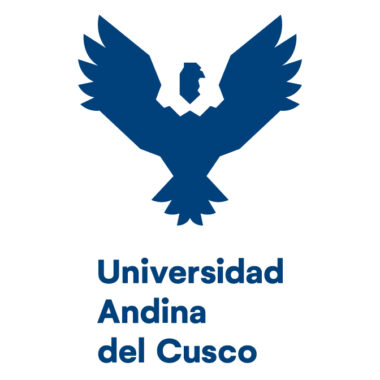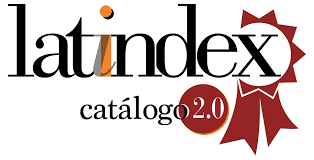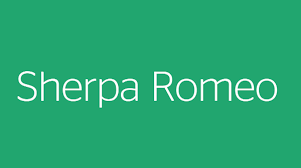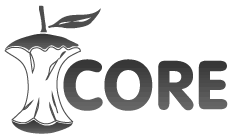Construction of scientific theories: new approaches and implications in the doctoral thesis
DOI:
https://doi.org/10.36881/yachay.v12i2.751Keywords:
scientific theory, theory construction, research approach, doctoral thesisAbstract
The objective of this article was to analyze the process of constructing scientific theories and its implications in the preparation of the doctoral thesis. To achieve this goal, a traditional literature review was carried out that included the analysis of classic and contemporary documentary sources, located in important databases such as WOS and Scopus. The product of the work carried out describes the different logical methods and research approaches used to generate theories, with the purpose of providing basic notions about the construction of theories and contributing to elucidating issues that generate constant doubts in doctoral students. Finally, some procedures are proposed for the construction of theories, making it clear that the proposed schemes and sequences are flexible and that they can be adapted depending on the nature of the object of study, the interests and intentions of the researchers and the norms of each institution.
Downloads
References
Amadi, A. (2023). Integration in a mixed-method case study of construction phenomena: from data to theory. Engineering, Construction and Architectural Management, 30(1), 210-237. https://doi.org/10.1108/ECAM-02-2021-0111
Arias-Odón, F. (2023). Breve glosario de la investigación cualitativa y teoría fundamentada. https://doi.org/10.13140/RG.2.2.29383.47523
Arias-Odón, F. (2018). Diferencia entre teoría, aproximación teórica, constructo y modelo teórico. Revista Actividad Física y Ciencias, 10(2), 7-12. https://doi.org/10.13140/RG.2.2.27810.61128
Arias-Odón, F. (2019). Investigación teórica, investigación empírica e investigación generativa para la construcción de teoría: precisiones conceptuales. https://doi.org/10.13140/RG.2.2.36357.91363
Arias-Odón, F. (2018). La tesis doctoral. El caso venezolano. Revista Paradigma, 39(1), 138-149. https://doi.org/10.37618/PARADIGMA.1011-2251.2018.p138-149.id647
Aslan, A. & Açıkgöz, Ö. (2023). A Systematic Review and Bibliometric Analysis of the Turkish Doctoral Dissertations Completed in the Fields of Social Sciences and Humanities. Üniversite Araştırmaları Dergisi , 6(3) , 238-246. https://doi.org/10.32329/uad.1310803
Borsboom, D., L. J. van der Maas, H., Dalege, J., Kievit, R. & Haig, B. (2021). Theory Construction Methodology: A Practical Framework for Building Theories in Psychology. Perspectives on Psychological Science, 16(4) 756-766. https://doi.org/10.1177/1745691620969647
Bunge, M. (2004). La investigación científica. Su estrategia y su filosofía. Siglo XXI.
Charmaz, K. & Thornberg, R. (2021). The pursuit of quality in grounded theory. Qualitative Research in Psychology, 18(3), 305-327. https://doi.org/10.1080/14780887.2020.1780357
Contreras-Colmenares, A. F., Díaz-Quero, V. R. y Ramírez-Sánchez, R. H. (2023). Fundamentos en la generación de teorías. Areté, 9(17), 11-42. https://doi.org/10.55560/arete.2023.17.9.1
Corbin, J. & Strauss, A. (2014). Basics of Qualitative Research: Techniques and Procedures for Developing Grounded Theory, 4th. Sage Publications.
Estrada-Acuña, R., Arzuaga, M., y Giraldo, C. (2019). La teoría fundamentada clásica : una opción para construir el camino investigativo durante la formación doctoral. Biblioteca LasCasas, 15, 1-7. https://bit.ly/3Rew4kG
Faryadi, Q. (2019). PhD Thesis Writing Process: A Systematic Approach. How to Write Your Methodology, Results and Conclusion. Creative Education, 10, 766-783. https://doi.org/10.4236/ce.2019.104057
García Ríos, A. (2019). Investigación-creación en tesis doctorales de artes y diseño. Revista KEPES, 16(2), 639-671. https://doi.org/10.17151/kepes.2019.16.20.23
Goetz, J. y LeCompte, M. (1988). Etnografía y diseño cualitativo en investigación educativa. Morata.
Grodal, S., Anteby, M. & Holm, A. (2021). Achieving Rigor in Qualitative Analysis: The Role of Active Categorization in Theory Building. AMR, 46, 591-612. https://doi.org/10.5465/amr.2018.0482
Guerrero-Castañeda, R., Prado, M., y Ojeda-Vargas, M. (2016). Reflexión crítica epistemológica sobre métodos mixtos en investigación de enfermería. Enfermería Universitaria, 13(4), 246-252. https://doi.org/http://dx.doi.org/10.1016/j.reu.2016.09.001
Jaccard, J. & Jacoby, J. (2020). Theory construction and model-building skills: A practical guide for social scientists (2nd ed.). The Guilford Press.
Janiszewski, C. & Van Osselaer, S. M. J. (2022). Abductive Theory Construction. Journal of Consumer Psychology (JCP), 32(1), 175-193. https://doi.org/10.1002/jcpy.1280
Kelle, U. (2016). Mixed Methods and the Problems of Theory Building and Theory Testing in the Social Sciences. In S. Hesse-Biber & R. Burke Johnson (eds.), The Oxford Handbook of Multimethod and Mixed Methods Research Inquiry, (pp. 594-605). Oxford University Press. https://doi.org/10.1093/oxfordhb/9780199933624.013.36
Kivunja, C. (2018). Distinguishing between Theory, Theoretical Framework, and Conceptual Framework: A Systematic Review of Lessons from the Field. International Journal of Higher Education, 7(6), 44-53. https://doi.org/10.5430/ijhe.v7n6
Locke, E. A. & Latham, G. P. (2020). Building a theory by induction: The example of goal setting theory. Organizational Psychology Review, 10(3-4), 223-239. https://doi.org/10.1177/2041386620921931
Markovsky, B. & Webster, M. (2015). Theory Construction. In The Blackwell Encyclopedia of Sociology, G. Ritzer (Ed.). https://doi.org/10.1002/9781405165518.wbeost021.pub2
Martínez, M. (2006). Ciencia y arte en la metodología cualitativa. Trillas.
Muñoz Razo, C. (2012). Cómo elaborar y asesorar una investigación de tesis 2ª ed. Pearson.
Nayak, U., Hoogar, P., Mutalik, S., Udupa, N. (2023). Writing a Postgraduate or Doctoral Thesis: A Step-by-Step Approach. In: Jagadeesh, G., Balakumar, P., Senatore, F. (eds). The Quintessence of Basic and Clinical Research and Scientific Publishing. Springer. https://doi.org/10.1007/978-981-99-1284-1_48
Nunez Moscoso, J. (2019). Razonamiento abductivo: una contribución a la creación del conocimiento en educación. Cadernos de Pesquisa, 49(171), 308-329. https://doi.org/10.1590/198053145255
Palacios Rodríguez, O. (2021). La teoría fundamentada: origen, supuestos y perspectivas. Intersticios sociales, (22), 47-70. https://bit.ly/49WBRCz
Passey, D. (2020). Theories, theoretical and conceptual frameworks, models and constructs: Limiting research outcomes through misconceptions and misunderstandings. Studies in Technology Enhanced Learning, 1(1), 1-35. https://doi.org/10.21428/8c225f6e.56810a1a
Parija, S. C. & Kate, V. (Eds.). (2018). Thesis Writing for Master's and Ph.D. Program. Springer.
Phillips, E., Johnson, C. & Pugh, D. (2022). How to Get a PhD: a Handbook for Students and Their Supervisors 7th. Open University Press / MacGraw Hill.
Ramos Vivas, J. (2019). El arte de la tesis doctoral. Editorial Berenice.
Revilla Herman, E., y Gil Otaiza, R. (2018). La construcción de teorías científicas: Una disertación desde lo pragmático. Revista Dikaiosyne, 33, 195-221. https://bit.ly/3RgWLFd
Sabino, C. (2006). Cómo hacer una tesis y elaborar todo tipo de escritos. Panapo.
Sierra Bravo, R. (2003). Tesis doctorales y trabajos de investigación científica. Thomson.
Swedberg, R. (2016), Before theory comes theorizing or how to make social science more interesting. The British Journal of Sociology, 67, 5-22. https://doi.org/10.1111/1468-4446.12184
Swedberg, R. (2015). The art of social theory. Author.
Swedberg, R. (2014). Theorizing in Social Science: The Context of Discovery. Author.
Swedberg, R. (2017). Theorizing in Sociological Research: A New Perspective, a New Departure? The Annual Review of Sociology, 43, 189-206. https://doi.org/10.1146/annurev-soc-060116-053604
Timmermans, S. & Tavory, I. (2022). Data Analysis in Qualitative Research. Theorizing with Abductive Analysis. University of Chicago Press.
Udo-Akang, D. (2012). Theoretical Constructs, Concepts, and Applications. American International Journal of Contemporary Research, 2(9), 89-97. https://bit.ly/3Rh5maX
Van Rooij, I. & Baggio, G. (2021). Theory Before the Test: How to Build High-Verisimilitude Explanatory Theories in Psychological Science. Perspectives on Psychological Science, 16(4), 682-697. https://doi.org/10.1177/1745691620970604
Varpio, L., Paradis, E., Uijtdehaage, S. & Young, M. (2020). The Distinctions Between Theory, Theoretical Framework, and Conceptual Framework. Academic Medicine, 95(7), 989-994. https://doi.org/10.1097/ACM.0000000000003075
Vila-Henninger, L., Dupuy, C., Van Ingelgom, V., Caprioli, M., Teuber, F., Pennetreau, D., Bussi, M. & Le Gall, C. (2022). Abductive Coding: Theory Building and Qualitative (Re)Analysis. Sociological Methods & Research, 0(0), 1-34. https://doi.org/10.1177/00491241211067508
Warr, M., Mishra, P. & Scragg, B. (2020). Designing theory. Education Tech Research Dev, 68, 601-632. https://doi.org/10.1007/s11423-020-09746-9
Downloads
Published
How to Cite
Issue
Section
License

This work is licensed under a Creative Commons Attribution 4.0 International License.
You are free to:
- Share — copy and redistribute the material in any medium or format
- Adapt — remix, transform, and build upon the material
- The licensor cannot revoke these freedoms as long as you follow the license terms.
Under the following terms:
-
Attribution — You must give appropriate credit, provide a link to the license, and indicate if changes were made. You may do so in any reasonable manner, but not in any way that suggests the licensor endorses you or your use.















